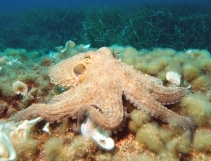
Mutants used to only exist in sci-fi movies and television shows, such as "X-Men," "The Teenage Mutant Ninja Turtles" and other superhero action flicks.
Recently, however, scientists from the University of California, San Diego, were able to create mutants—not just one, but an entire generation of them.
Biologist Ethan Bier's graduate students from the university succeeded in their experiment to force a generation of brown fruit flies to have mostly blond offspring using a technique called "gene drive."
"It was one of the most astounding days in my personal scientific career. When he first showed me, I could not believe it," Bier told Oregon Public Broadcasting on Thursday, as quoted by WND.com.
He also said that although the experiment sounded simple, it can have very strong implications on the future of genetics. In fact, the professor shared that his students were "jumping up and down" when the next generation maintained the mutation.
"I believe it's going to transform the world of genetics, because it's going to allow researchers to bypass the rules of genetics in many different spheres of activity," Bier explained.
"The gene drive immediately makes the organisms that carry [a desired mutation] have the characteristic and then secondly it causes them to have all their children have the same characteristic," he added.
The technique becomes even more effective when combined with CRISPR, a new genome editing tool.
"We're basically able to have a molecular scalpel for genomes. All the technologies in the past were sort of like sledgehammers. ... This just gives scientists the capability do something that is incredibly powerful," biologist Jennifer Doudna earlier explained to Tech Insider.
With the success of these genetic experiments, scientists think these can pave the way for cures to many diseases.
Insects may also now be mutated so that they will no longer eat valuable crops—a move that can also disrupt ecosystems.
New York University bioethicist Brendan Parent told OPB that scientists also warned of nightmarish effects of the current gene experiments.
"There are inherent problems with gene drives. We don't know what other impacts we're having. We don't know whether the elimination of malaria specifically won't somehow have genetic effects that cause a super-virulent pathogen to be released or to bring in much greater catastrophic consequences," Parent said in an article on WND.com.
New York Medical College cell biologist Stuart Newman meanwhile said these genetic techniques can be used in the near future for terrorism.
"If any group or country wanted to develop germ warfare agents they could use techniques like this. It would be quite straightforward to make new pathogens this way," he said.
















